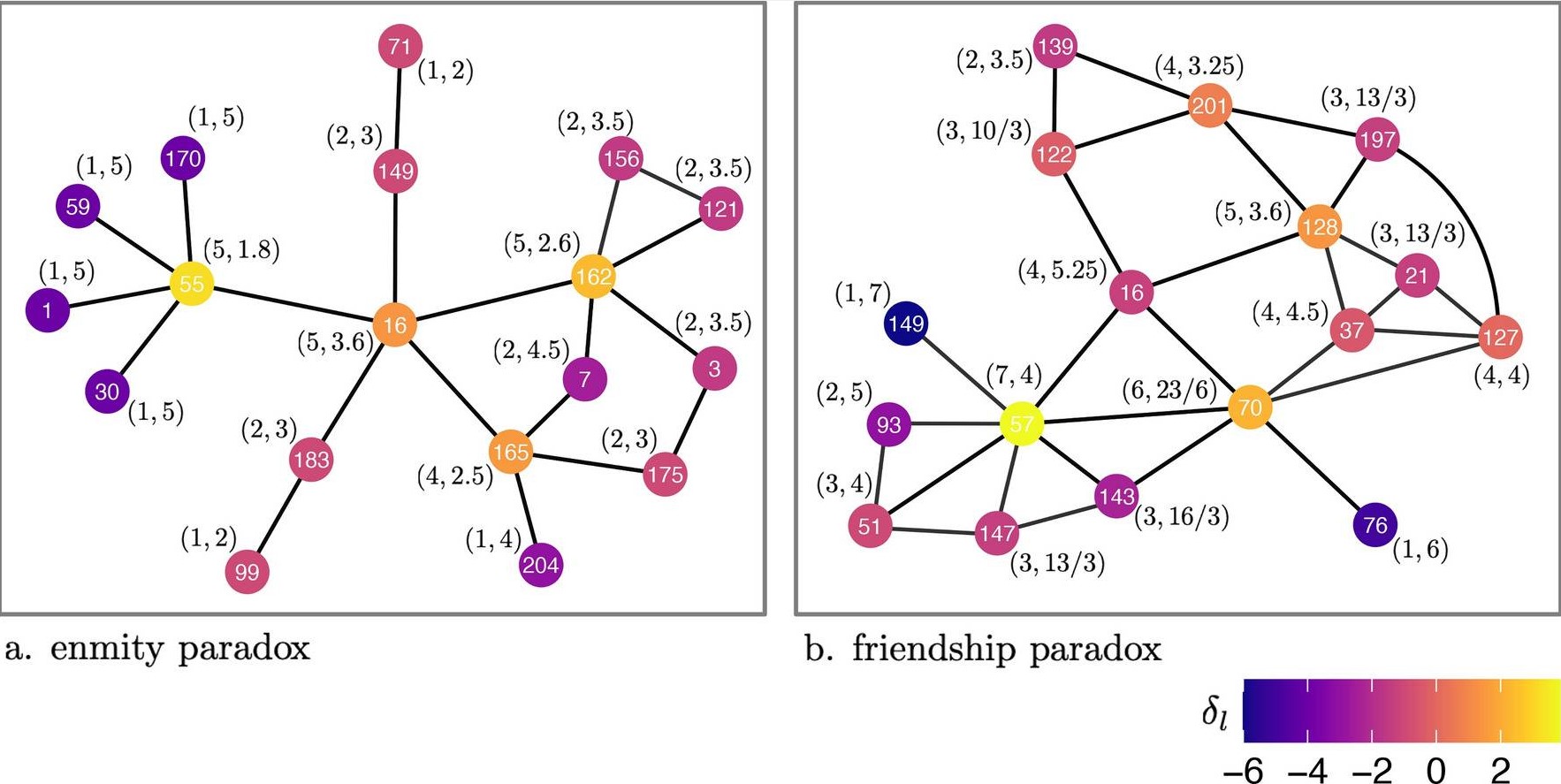
The Enmity Paradox
Abstract
The “friendship paradox” of social networks states that, on average, “your friends have more friends than you do”. Here, we theoretically and empirically explore a related and overlooked paradox we refer to as the “enmity paradox”. We use empirical data from 24,678 people living in 176 villages in rural Honduras. We empirically show that, for a real negative undirected network (created by symmetrizing antagonistic interactions), the paradox exists as it does in the positive world. Specifically, a person’s enemies have more enemies, on average, than a person does. Furthermore, in a mixed world of positive and negative ties, we study the conditions for the existence of the paradox, which we refer to as the “mixed-world paradox”, both theoretically and empirically, finding that, for instance, a person’s friends typically have more enemies than a person does. We also confirm the “generalized” enmity paradox for non-topological attributes in real data, analogous to the generalized friendship paradox (e.g., the claim that a person’s enemies are richer, on average, than a person is). As a consequence, the naturally occurring variance in the degree distribution of both friendship and antagonism in social networks can skew people’s perceptions of the social world.
Citation:
Ghasemian A, Christakis NA. The enmity paradox. Sci Rep. 2023 Nov 16;13(1):20040. doi: 10.1038/s41598-023-47167-9. PMID: 37973933; PMCID: PMC10654772.